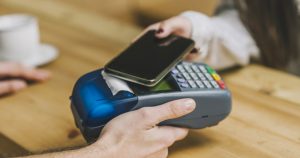Legal tender is in a tender spot, as the global shift toward cashless economies has been accelerated by the coronavirus pandemic. The recent market trend of using cards and payments apps in lieu of paper money is rapidly becoming the new standard as COVID-19 presents obvious problems for cash distribution. For many businesses, this aligns with long-term goals set before the pandemic. It’s also a timely excuse for shuttering antiquated payments systems and instead concentrating on the digital marketplace.
“It’s clear that the ‘new normal’ for businesses of all sizes is defined in part by a shift in consumer preference for e-commerce and contactless payments, which can help limit consumer exposure and promote social distancing during the pandemic,” said Jodie Kelley, the Chief Executive of the Electronics Transactions Association, which represents more than 500 payments and technology companies. Businesses and customers have found similar priorities in the thick of a global pandemic.
The benefits a consumer can expect from embracing the cashless economy can be boiled down to security, access, and speed. Debit cards and mobile payments are loaded with safeguards protecting from theft. Home budgeting using archived payment data can be done from the comfort of an actual home, and even without the concern of where, there are few limits on when exactly one can conduct one’s business with digital money.
Less paper money is a boon to fraud detection for banks, and cashless transactions provide revenue by collecting online user data. Banks, credit suppliers, and payments companies stand to gain massive profits from selling customer-generated data. Privacy may in fact be the main disadvantage to the prospective cashless consumer, as digital money has virtually no guarantee of anonymity.
Detractors of the cashless economy urge caution. The consumer champion Which? reported that over a third of U.K. citizens have had at least one cash purchase blocked since the March lockdown. Businesses are advised to accept physical money and petition the U.K. government for legislation protecting cash acceptance and supporting research into the matter. “The government… must urgently make the Financial Conduct Authority responsible for tracking cash acceptance levels,” said Which? Money Editor Jenny Ross. “Failure to do so will see the cash network crumble and leave millions of people abandoned.”
Individuals with limited access to cash-free options such as the homeless, elderly, and undocumented are not completely out of luck, as the requirement for businesses to accept legal tender remains and cashless stores were banned last year in New York, Philadelphia, San Francisco, and New Jersey. Nevertheless, according to a study by Experian, about a third of adults in the U.S. report making no cash purchases during an average week, and 10% of millennials are wielding their digital wallet for every transaction.
As the pandemic stretches on, businesses have an impetus to protect the health of their customers. This consideration happens to dovetail nicely into the modern ideal of a no-contact, digital currency operation. Now that consumers have familiarity with the safest ways to exchange money, they won’t be turning back.
























